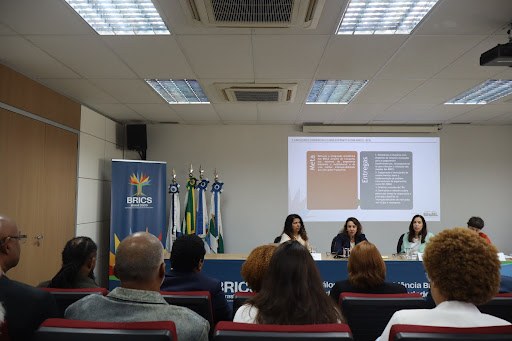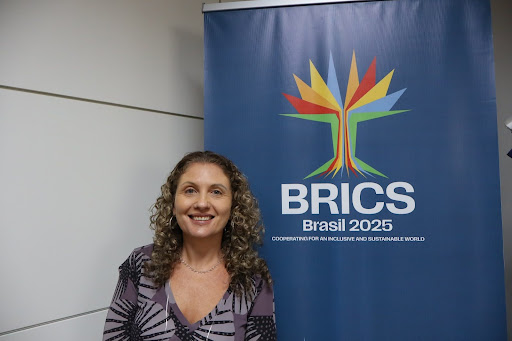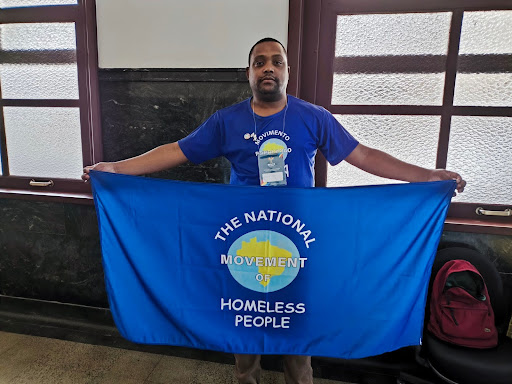BRICS and the challenge of going where the people are
During a meeting of finance representatives from the emerging countries, civil society called for housing policies and support for people experiencing homelessness. The Finance pillar presented its proposals and goals to be discussed by the group.

To present the main priorities of the Brazilian BRICS Presidency, the Finance Pillar held a meeting with civil society on March 24 in Rio de Janeiro. The proposals presented to the population include larger investments in climate funds and the coordination of reforms of the international monetary and financial system.
According to Professor Ana Garcia, a researcher from the BRICS Policy Center, BRICS negotiations have historically been restricted to member countries, with little space for social participation. She noted that this reality has been changing in the last few years with the introduction of social participation mechanisms. “With the return of the presidency to Brasil, and following the experience with the G20 Social, the Brazilian government is more open to creating information spaces. Civil society participation is more frequent, with spaces for transparency and the sharing of information about the demands, agendas, and social struggles.”
Brasil has assumed the BRICS presidency for the fourth time since its establishment in 2001. The group is composed of Brasil, China, Egypt, Ethiopia, Indonesia, Iran, Russia, Saudi Arabia, South Africa, and the United Arab Emirates in the category of member countries. Other nations that participate in the bloc as guests and partners will also have representatives taking part in the BRICS Leaders Summit in July, Rio de Janeiro.

BRICS is divided into various pillars that discuss multiple themes of interest for the emerging economies, including labor, artificial intelligence, global governance reform, and climate change. This year, more than 100 meetings engaging representatives from the member countries are expected to occur.
According to the researcher, the meeting promoted by the Finance Pillar with civil society in Rio de Janeiro helps bring populations closer to the issues currently being discussed by member countries. One of the priorities presented at the event was the proposal to reform the international monetary and financial system and to facilitate trade and investment among BRICS countries. The idea is to strengthen negotiations among bloc members through transactions conducted in their national currencies, which could reduce dependency on the dollar.
During the initial debates, the Pillar explained its intention to expand the New Development Bank (NDB), one of the main development banks of the Global South, responsible for financing infrastructure projects in several countries. Other goals mentioned at the event with civil society representatives included the admission of new members and advancing dialogues on customs-related issues and public-private partnerships.
Flávio Lino, the executive secretary of Brasil’s National Movement of People in Situational Homelessness (Movimento Nacional de População em Situação de Rua /MNPSR), emphasized the need for engagement with civil society to be translated into public policies. “Being present in this space means bringing our experiences, hopes, and expectations that international development policies will truly reach people experiencing homelessness.”

According to a 2022 study by Participa + Brasil, over 4.5 million people are experiencing homelessness in the BRICS founding countries (Brasil, Russia, India, and South Africa). “BRICS addresses development, but development without the people is not the same thing,” stated the secretary.
Lino coordinated the sub-group on People Experiencing Homelessness during the G20 Social last year. The secretary told AGENC that the movement is preparing a document with suggestions to be submitted to the BRICS Finance Pillar. Among the possible proposals is the creation of an international fund for housing and social assistance.
In addition to leading the BRICS this year, Brasil will also preside over COP30, which will take place in Belém, the capital of the state of Pará. Brasil has been working to bring environmental issues and pathways toward a more sustainable economy to the BRICS agenda. Green taxonomies, blended finance, and the energy transition are among the topics introduced to the group by the Brazilian presidency. According to a researcher from the BRICS Policy Center, achieving environmental alignment could pose a significant challenge among BRICS countries.
*By Everton Victor and Julia Lima. Content originally published on UERJ’s Scientific News Agency (Agência de Notícias Científicas da UERJ /AGENC).
🎙️ Check out the article produced by Journalism students and published originally by UERJ’s Scientific News Agency (Agência de Notícias Científicas da UERJ /AGENC), in yet another content partnership promoted by the BRICS Communications team.